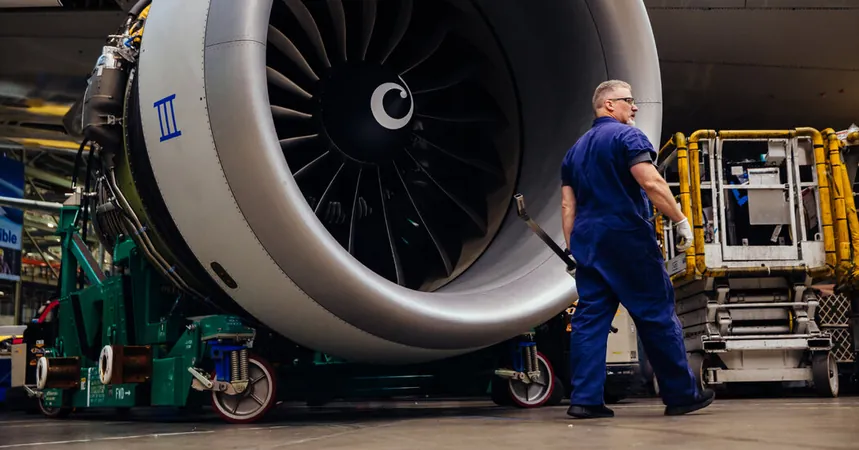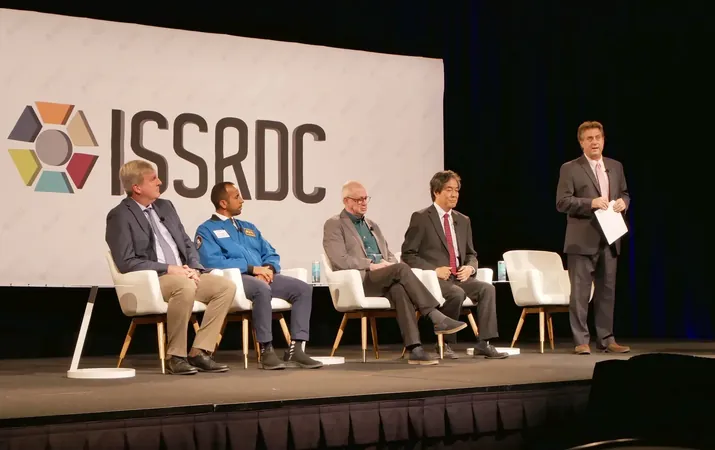
Unveiling the U.S. Investigation into Imported Aircraft and Parts: What's at Stake?
2025-05-09
Author: Yan
U.S. Launches Probe into Aviation Imports
In a bold move, the U.S. government has kicked off an investigation into the importation of commercial aircraft, jet engines, and associated components. This initiative, under the direction of the Trump administration, could pave the way for new tariffs, adding to the already significant ones in place.
Navigating National Security Concerns
The investigation, initiated by Commerce Secretary Howard Lutnick on May 1, leverages the Trade Expansion Act, which grants the president the authority to impose tariffs on foreign goods deemed essential for national security. This power has already been exercised with tariffs on steel and aluminum, as well as investigations focused on semiconductors and pharmaceuticals.
Impact on the Aerospace Industry
The Commerce Department has announced it will gather insights from the aerospace sector regarding domestic demand for aircraft and whether local production can meet this need. Other focal points will include the influence of foreign suppliers and potential advantages provided by foreign governments to their local firms.
While the introduction of tariffs could pose risks to an industry that has historically generated significant trade surpluses, the aerospace sector heavily depends on specialized parts manufactured worldwide. Estimates indicate that the industry is set to export a staggering $125 billion this year, trailing only the oil and gas sector.
Echoes from Industry Leaders
Eric Fanning, president of the Aerospace Industries Association, expressed optimism regarding the investigation's potential benefits. He emphasized the sector's contributions to economic growth and national defense, stating, “We look forward to working with the Department of Commerce to enhance our domestic supply chain while sustaining the trade dynamics that have solidified our global leadership in aerospace.”
Concerns from Major Players
Boeing, a titan in the commercial airplane manufacturing sphere, has noted that current tariffs have had a minor immediate impact on its operations. However, concerns linger regarding their long-term effects on suppliers. CEO Kelly Ortberg mentioned that Boeing faces a 10% tariff on wide-body jet components imported from Japan and Italy, although recovery of these costs is anticipated upon the sale of the aircraft.
Meanwhile, RTX, a manufacturer of aircraft engines, projected that tariffs would incur $850 million in costs this year, while GE Aerospace reported expected tariff expenses of $500 million.
Global Tensions in the Aviation Industry
Historically, governments worldwide have used tariffs and subsidies to safeguard and advance their aviation sectors. The U.S. and the European Union have had prolonged disputes over alleged unfair subsidies provided to aerospace giants Boeing and Airbus, the latter of which is based in France and operates in multiple European nations.
As the investigation unfolds, the future of the U.S. aerospace industry hangs in the balance, poised between national interests and global economics.



 Brasil (PT)
Brasil (PT)
 Canada (EN)
Canada (EN)
 Chile (ES)
Chile (ES)
 Česko (CS)
Česko (CS)
 대한민국 (KO)
대한민국 (KO)
 España (ES)
España (ES)
 France (FR)
France (FR)
 Hong Kong (EN)
Hong Kong (EN)
 Italia (IT)
Italia (IT)
 日本 (JA)
日本 (JA)
 Magyarország (HU)
Magyarország (HU)
 Norge (NO)
Norge (NO)
 Polska (PL)
Polska (PL)
 Schweiz (DE)
Schweiz (DE)
 Singapore (EN)
Singapore (EN)
 Sverige (SV)
Sverige (SV)
 Suomi (FI)
Suomi (FI)
 Türkiye (TR)
Türkiye (TR)
 الإمارات العربية المتحدة (AR)
الإمارات العربية المتحدة (AR)